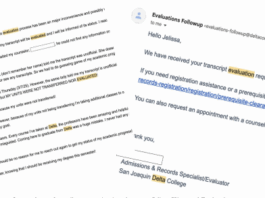Anxiety can be like an ulcer, moving us backwards instead of forwards.
Navigating through life is never devoid of anxiety, but we are seldom offered the tools to handle these feelings.
Up until recently, society has regarded speaking about mental health issues as a sign of weakness.
In my experience, therapy has been the most powerful tool to help with anxious feelings and depression.
At 14 years old, I experienced panic attacks almost daily. When I told my dad, his first solution was medication. My mom protested this and offered therapy instead.
Then as I approached adulthood, I spent a decent chunk of time being depressed and bedridden, only to seek out therapy once again.
Sacramento State Grad Student Isabella Brown-Quigley talked to me about her own experience with anxiety and how therapy has helped remedy the intensity.
“For me, therapy has always provided tools to handle things while I am anxious. Also made me more self-aware and taught me that I can’t control everything,” said Quigely.
The most staggering realization I came to was that my anxiety comes from a place of feeling unsafe. An inner voice would tell me to be afraid, I wasn’t good enough and to never try because eventually I would fail.
In order to counteract these feelings I’d have to essentially speak to my subconscious as if it were a 6-year-old. I won’t lie, it felt silly at the moment and it was hard to take seriously, but after I closed my eyes it was like I opened new ones.
Former Delta student and current UC Davis grad student Jagger Brooks spoke to me about his experience after 10 months in therapy.
“I focused a lot on confronting and changing the very self critical inner voice. I’ve learned to recognize that harsh inner voice that was often telling me things like I wasn’t good enough…I’ve managed to befriend this inner voice and be more kind to myself,” said Brooks
Therapy taught me the importance of journaling without constrictions. Writing without concern for grammar or punctuation, just letting your emotions guide your hands to paper, has helped me immensely.
“Journaling has also been a big part of this, it’s helped me process daily thoughts and maintain emotional clarity,” said Brooks.
On the latter side, Delta Student Tyler Mickschl talks about therapy being fickle.
“…an individual is an individual whether they have studied psychology or not. That is the reasoning for people jumping around from therapist to therapist for so long…I think that introspection with a general understanding of cognitive behavioral therapy is more beneficial,” said Mickshl.
I understand where he’s coming from here, and I speak from a place of being lucky enough to have a great therapist from day one. It’s tough to find a good therapist, and it can be frustrating to search for a connection.
Still, I think having a therapist guide you to be self aware of your own emotions is beneficial. In regular everyday life how often do people point out something about yourself that maybe you’ve never noticed?
It happens but we shrug it off, a therapist is a professional whose understanding comes from years of school and hours of experience with clients before operating on their own. Not every therapist is great but there is one out there for everyone.
It just takes time and patience.
Today, I’m approaching 10 years in therapy and looking back I’m not sure who I’d be without it.



